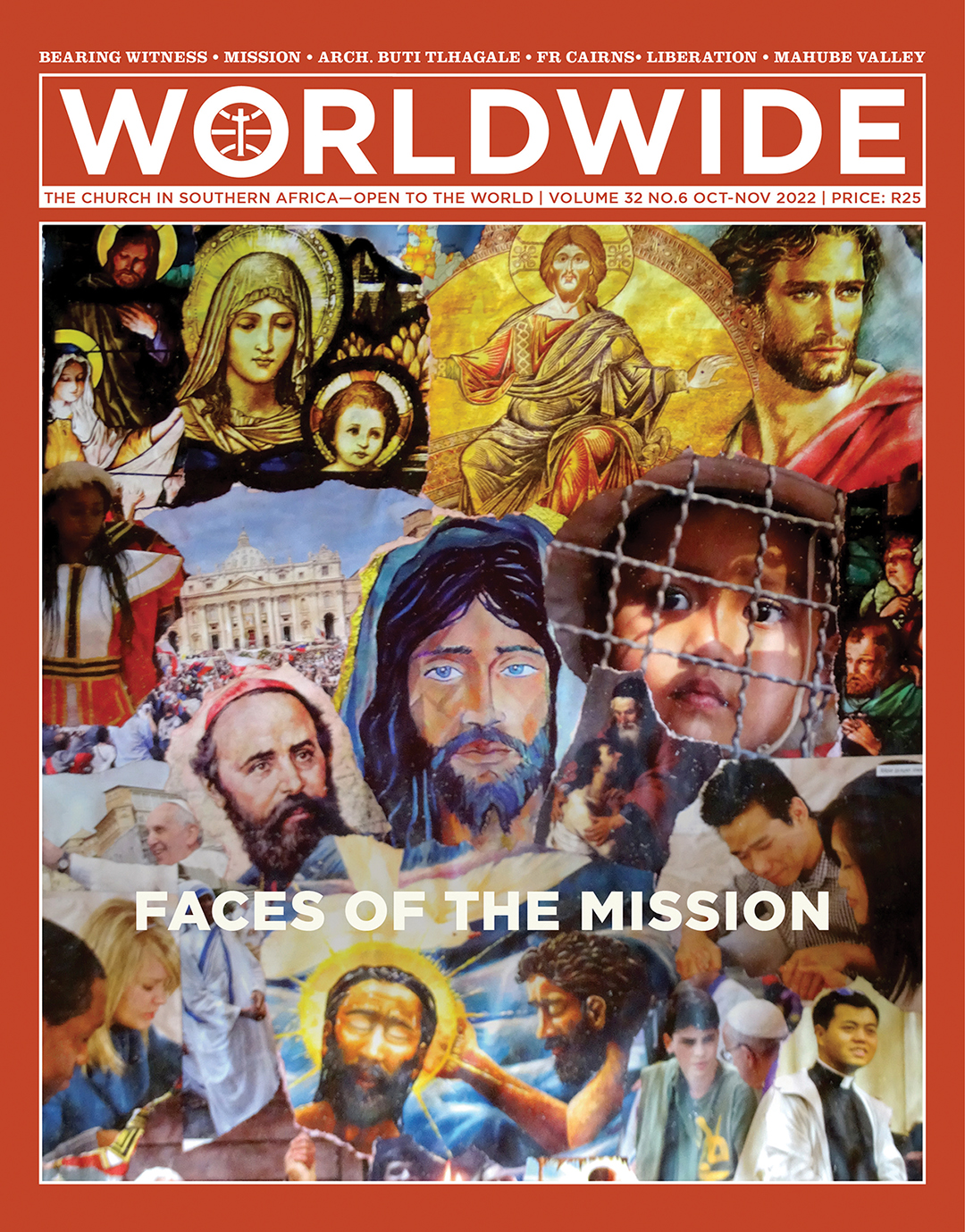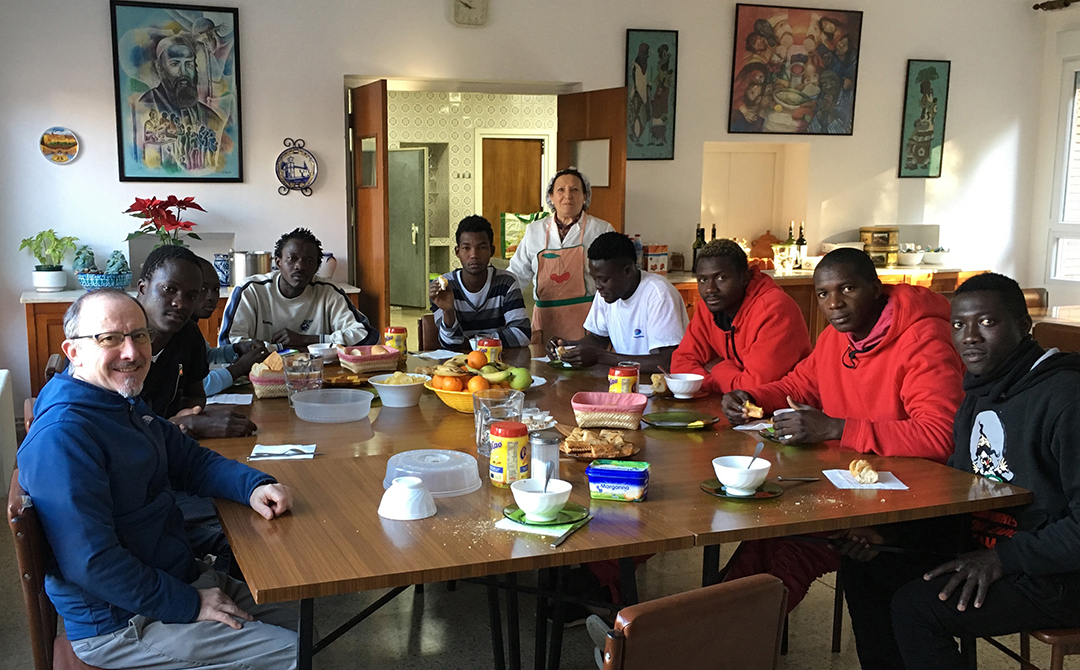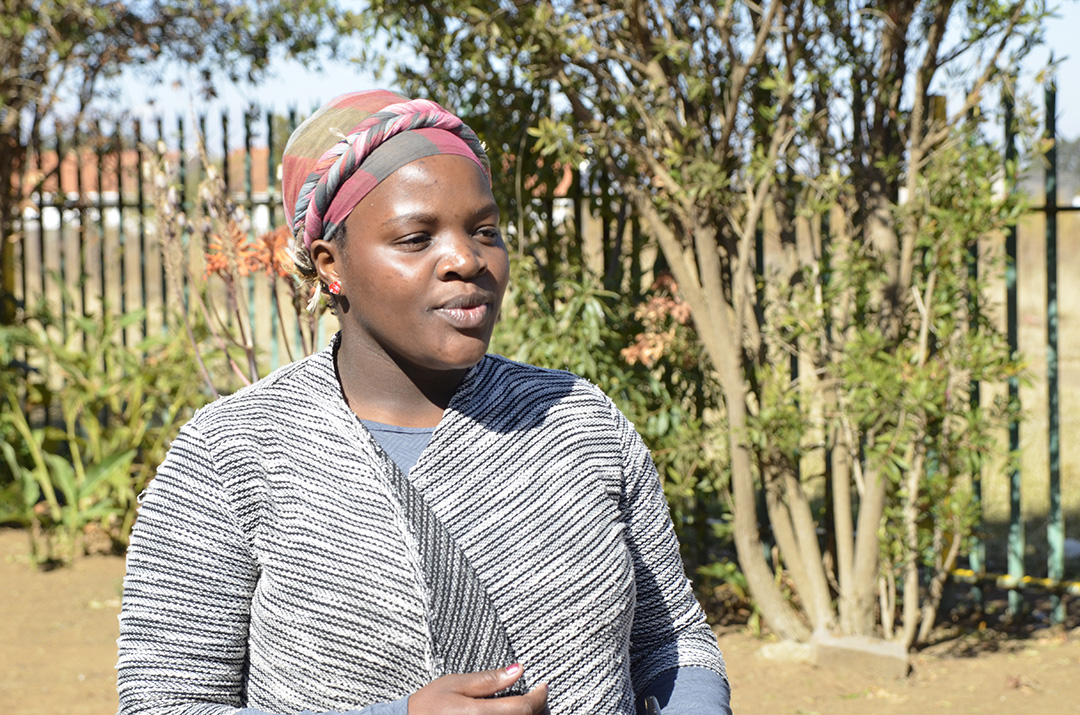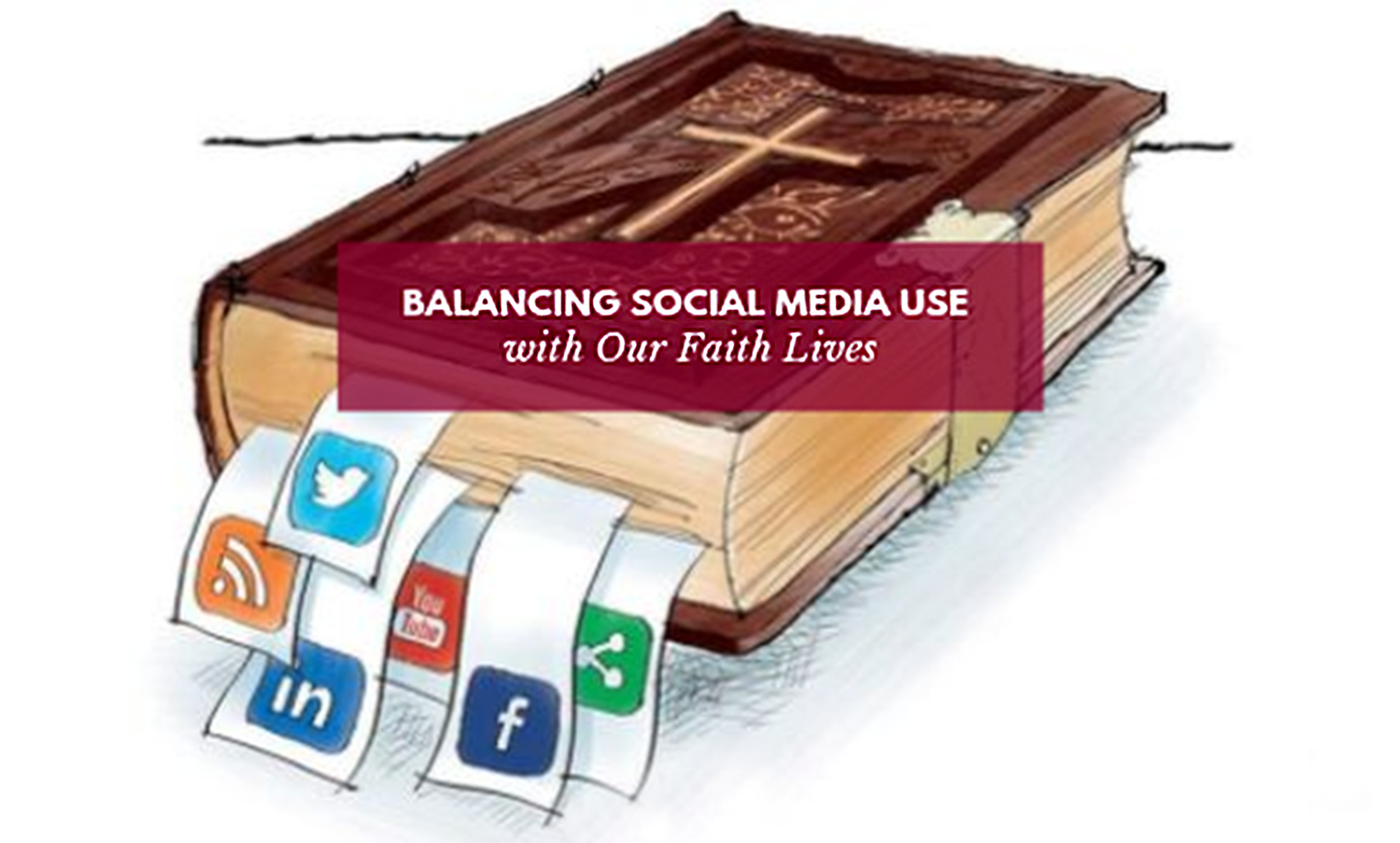SPECIAL REPORT • AN ASIAN VIEWPOINT

Credit: Daniel Cerezo/Worldwide archive.
Searching together for deeper meanings
Bridge-builders devote themselves to healing wounds and fostering communion, as Jesus did. As real evangelizers they accompany individuals and communities in their search for deeper meaning in life. A qualified voice from the Asian continent shares a thought-provoking reflection on the issue
BY Archbishop Thomas Menamparampil, SDB | Archbishop Emeritus of Guwahati, India
Asia’s fast-changing image
A new face of Asia is fast emerging. Rural and agricultural communities, who were living generally in isolated villages, and eking out an existence from seasonal labour, have moved into investment and global economy in a matter of a few decades. The word that Pope Francis uses in Laudato Sí, “rapidification” or acceleration of changes in humanity and the planet combined with the intensification of the pace of life and work (LS 18) expresses most accurately the processes which are taking place on the Asian continent today. People are taking time to adjust to the pace of these changes.
Mass migration to urban centres has led to challenging situations of degrading conditions in cities, along with impersonal relationships and increasing social conflicts. Impoverished rural populations suffer from a fragmentation of land, declining fertility of soil, falling levels of water and exploitation by opportunistic leaders.
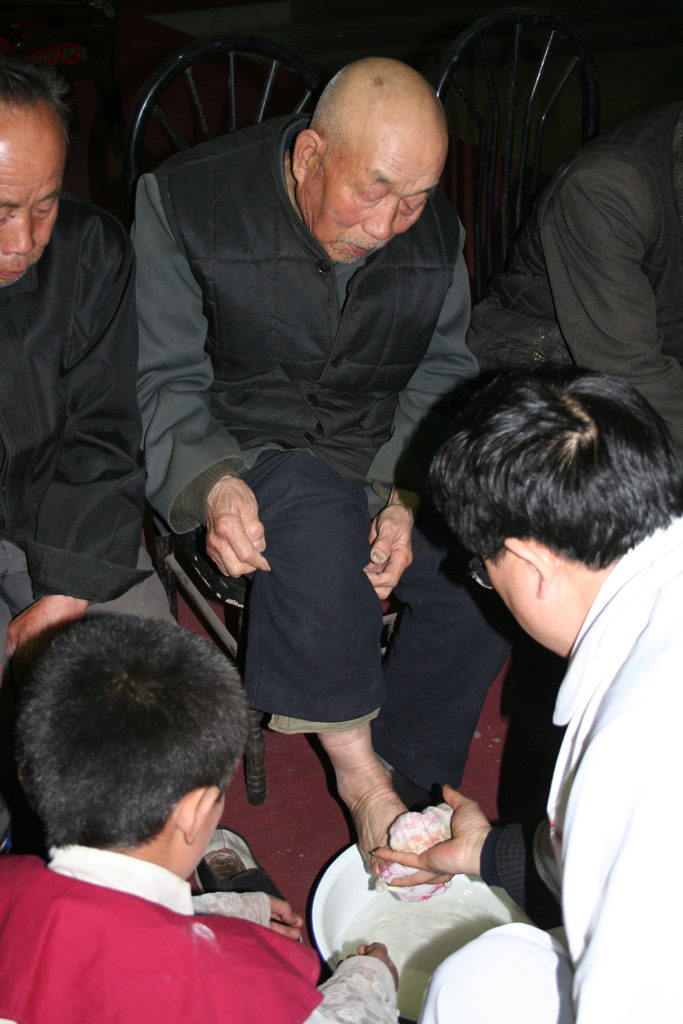
Credit: Daniel Cerezo/Worldwide archive.
The new globalized economy, while offering opportunities to those who are well equipped, has been pulling out many young people from their homes, families, religious beliefs, cultural roots, community identities, and familiar terrain, throwing them into a sea of uncertainties. Those who are ill equipped to adjust and grab opportunities in a competitive world, feel marginalized and exploited, and develop a deep sense of not belonging. Their anger and frustration generate in them aggressive urges which are often made use of by extremist leaders for their own purposes.
Weakening of a cultural continuity
There is a steady weakening of family and community bonds. Young people are often unable to deepen their own convictions and to develop a vision for their future while their value systems come under threat. They miss the cultural continuity that the presence of parents and grandparents, uncles and cousins, used to give them in a traditional set-up of joint families and communities. They miss the sanctions which parents and community leaders used to impose on them; the certainties that a common heritage handed down; and the solidarity that the village community used to offer them in moments of crisis.
Growing tensions give evidence that people’s traditional ideals and values of peaceful co-existence are fast weakening. In mixed societies, at workplaces, people do not always find common codes of behaviour, styles of relating or sources of inspiration by which they can be guided. Messages in the media tend to undermine the moral fibre of society; divisive forces weaken social bonds, eroding any sense of common belonging, and commitment to shared values and ideals.

Credit: Daniel Cerezo/Worldwide archive.
As a consequence, a situation of corruption emerges, where unabashed egotism, partisan attitudes and narrow-minded sectarian thinking takes hold even to the point of violence. A sense of accountability and responsibility for the common welfare is diminishing. Meanwhile, an increased availability of consumer goods keeps the middle class happy and contented, with hopes for further growth.
Some among the sophisticated members of society are influenced by new ways of understanding religion which are proposed by various schools of thought. They present religion as alienation, an instinct provided by nature for softening painful realities, opium of the oppressed people, plain escapism or illusion; a search for solace and inwardness. Amidst growing alarm about these forms of godlessness and uncertainty, some religious believers have turned to one or other form of fundamentalism, becoming ultra-conservative in outlook and radically aggressive against others.
Bridge-builders
In this context, bridge-builders become absolutely necessary. Despite so many difficulties amidst fundamentalists and radical viewpoints in society, bridge-builders search for a shared view of things, common ethical values and a joint approach to global problems. Communities need to go beyond reductionist perspectives of highly secularized social activists, legal experts and promoters of rights, whom even though they make valid contributions, lack a holistic vision.
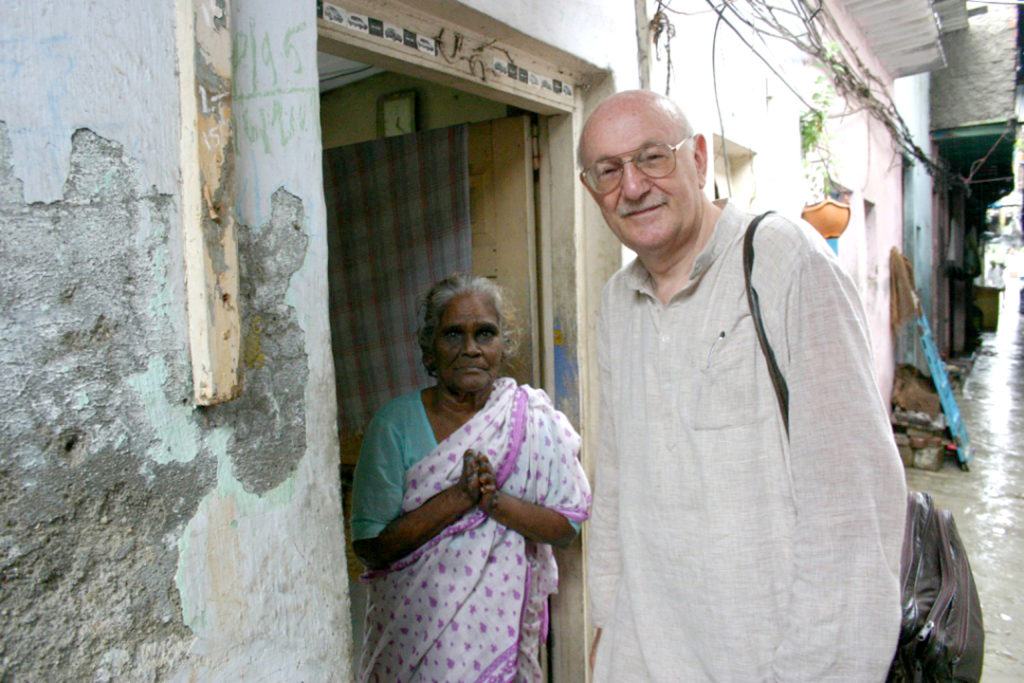
We need to listen to those who understand the deeper issues at work, beneath the immediate anxieties; those who offer a multi-disciplinary approach to issues. As St Paul suggests in Col 4: 6, “Your speech should always be pleasant and interesting, and you should know how to give the right answer to everyone”. This manner of dealing with others, even with those who differ greatly from us, should prevail, over vitriolic self-defence attitudes, as we are often reminded by Pope Francis.
Many young Christians are tempted to move in one of two directions: some, under pressure from modernizing trends, opt out of religious practice with no qualms of conscience; others, feeling insecure in the face of intense secularization, frantically look for emotional and vocal expressions of their faith, such as Pentecostalism. A true evangelizer becomes of great help to these different groups, “ready at all times to answer anyone who asks you to explain the hope you have in you, doing it with gentleness and respect” (1 Pet 3: 15).
A new pedagogy of communication
Amidst such cacophonous voices, a certain balance is needed. The right kind of evangelization gives unto Caesar what belongs to Caesar and to God what belongs to God, to every sphere of human thought and activity what is due, and central attention to what is central to humanity. It looks beyond past mistakes of a community and the present reasons for conflict. It joins hands with people of different persuasions in the cause of the common good, e.g. ethical values, liberty, equality, reform, rights of individuals, uplifting of women, respect for diversity, minority rights and the environment.
A creative pedagogy of communication of the faith, based on the religious psychology of each community or person, interprets each one’s measure of openness and leads from interests at that moment to whatever contributes to long-term good. Even if one is not interested in finding the meaning of life, one might look for success in life. While discussing this issue, an interest in the meaning of life can be born spontaneously, or stimulated. Then comes a search for deeper meaning, moving from the more familiar to what is less, linking new ideas with each person’s tradition.
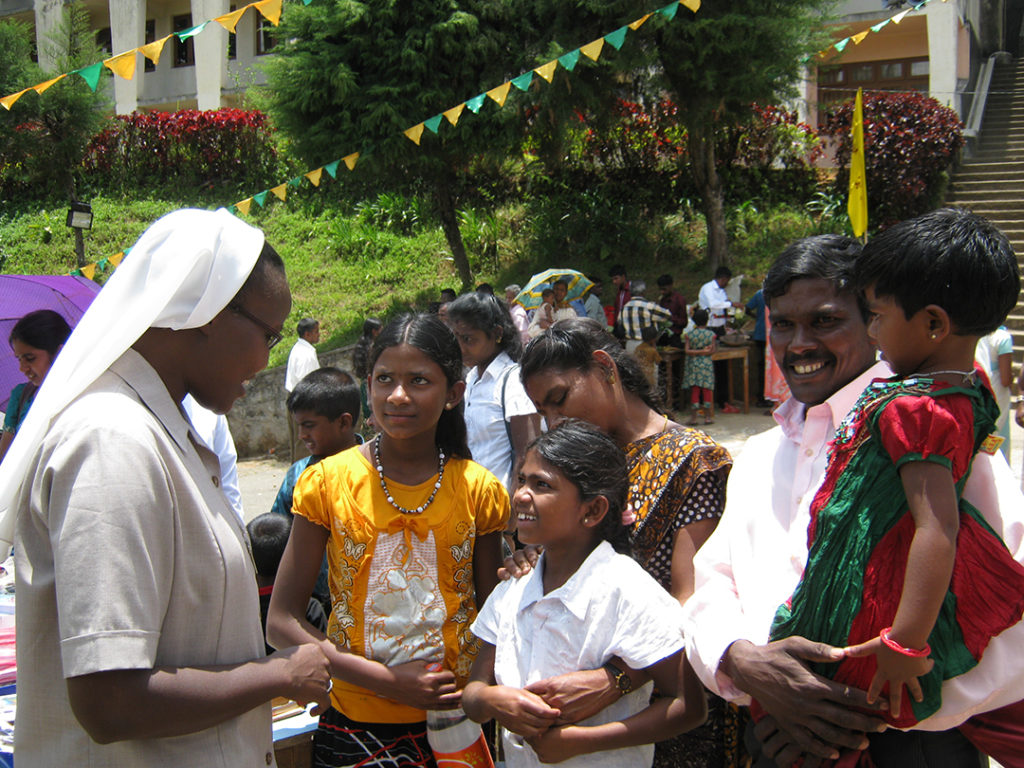
It is in a context of intimacy that the work of evangelization is done most effectively; teaching takes place as though there is no teaching, a helpful correction takes place as though there is no correction. The deepest religious mysteries are searched for as though the evangelizer and the seeker are in an enterprise of co-discovery!
Jesus’ approach: attentive to people’s thoughts and feelings
Much of Jesus’ teaching was done in personal encounters with individuals and groups. He was extremely attentive to others’ inner worlds which enabled Him to dialogue with them in depth. He was able to read the minds and thoughts of others before He spoke; His words were relevant and purposeful, e.g. Jesus perceived what they were thinking (Matt 9: 4); Jesus knew their thoughts (Luke 6: 8). See also Luke 9: 47; 11: 17 and Matt 12: 25.
Jesus’ competence was not only in the area of thoughts, but also in the area of feelings. He was able to fathom the unexpressed feelings and longings of others, so that He could intervene helpfully. He delved into the world of emotions and addressed them. He had a ‘human’ approach to every person, as Pope Francis has today, and adopted a ‘personal’ tone in speaking to individuals, e.g. the Samaritan woman, the one taken in adultery, the one who washed His feet, the Syro-Phoenician woman, Martha, Mary, Zacchaeus, Nathaniel and Thomas.
He expressed His compassion for the crowds. We read in Mark 8: 2, Jesus called His disciples to Him and said, “I feel sorry for these people, because they have been with me for three days, and now have nothing to eat”. He was deeply troubled thinking of Judas (John 13: 21); and again, He came closer to the city, and when He saw it, He wept over it (Luke 19: 41). Jesus also wept at the tomb of Lazarus (John 11: 35).
Witness of faith
Great announcers of the Word become icons of God’s concern for humanity, “who makes the sun to shine on bad and good people alike, and gives rain to those who do good and to those who do evil” (Matt 5: 45). They are intent on promoting a common searching among people of all convictions; they encourage co-searching, joint exploration and study together. They stand for complementary and mutually respectful roles.
Great announcers of the Word become icons of God’s concern for humanity
They do everything possible to restore the damaged heritages of peoples, including contemplative longing, a sense of the sacred, a capacity for wonder and mystery, the ability to help people to think, search deeply and explore meaning. The deepest message is passed on to the world when the witness to Jesus emerges as an inspiration, more than solely an announcement.

